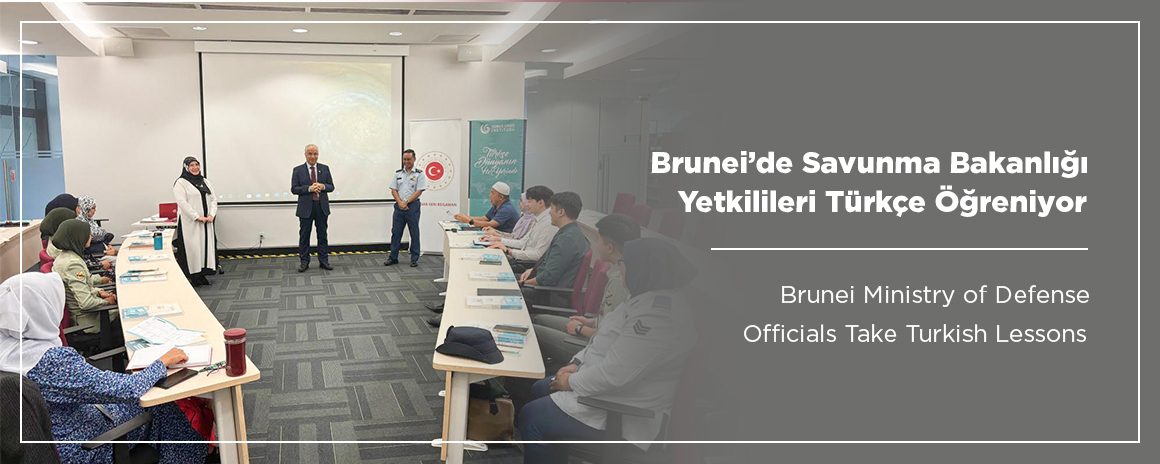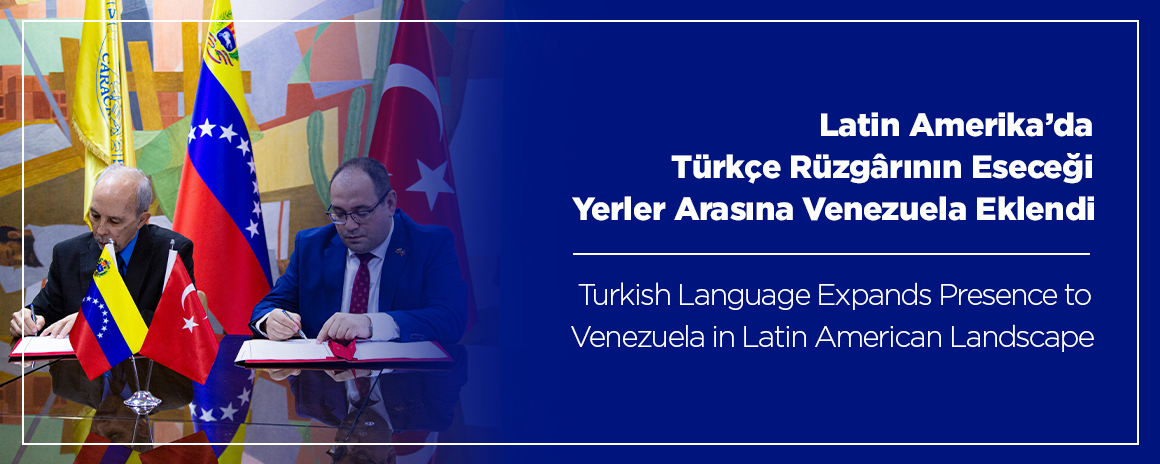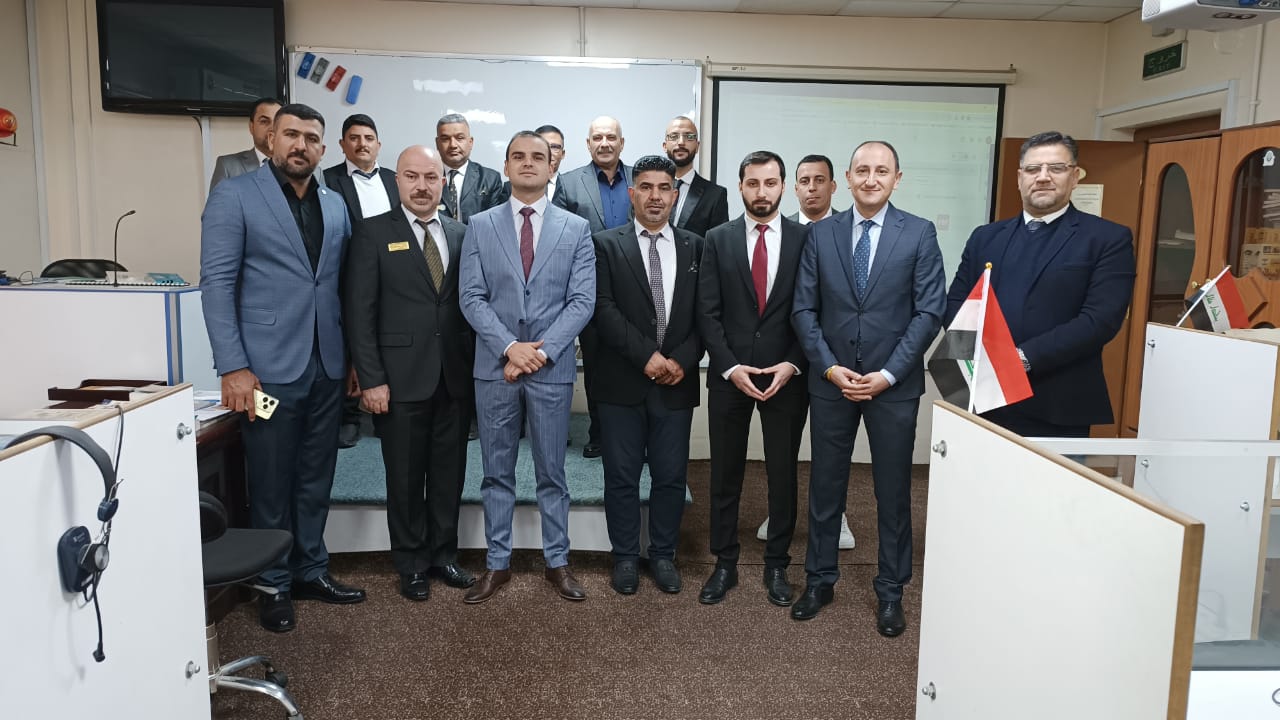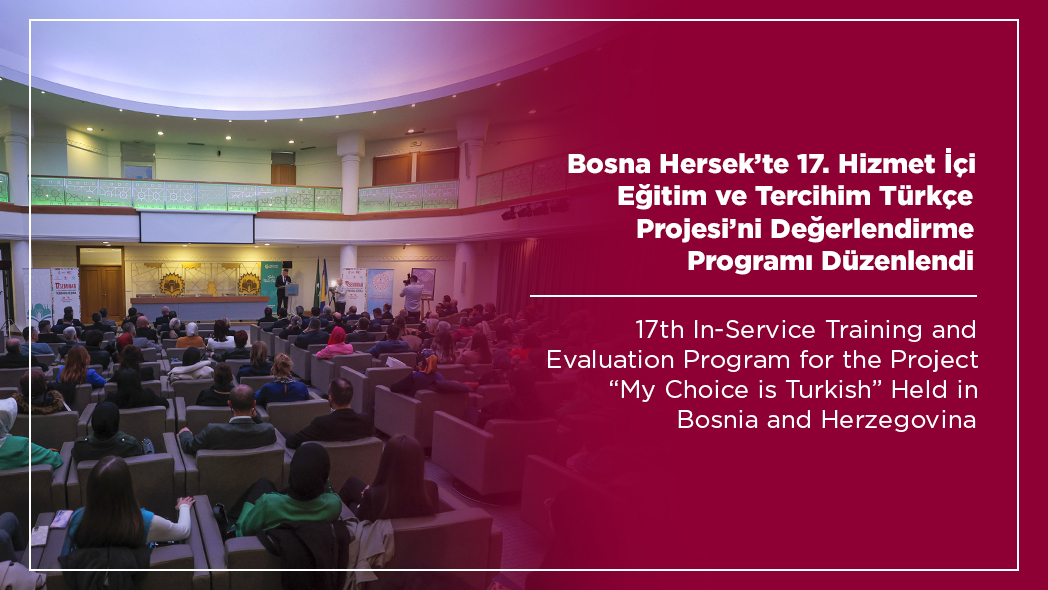"Child-Family Relationship and the Pandemic" Talk with Prof. Doğan Cüceloğlu
Yunus Emre Institute hosted Prof. Doğan Cüceloğlu within the scope of digital talks. Prof. Doğan Cüceloğlu talked about the values needed in the family and the education environment in order for the child to become a healthy individual at the "Child-Family Relationship and the Pandemic" Talk organized with the coordination of Pristina, Prizren and Ipek Yunus Emre Institutes and with the cooperation of Gerçek Association.
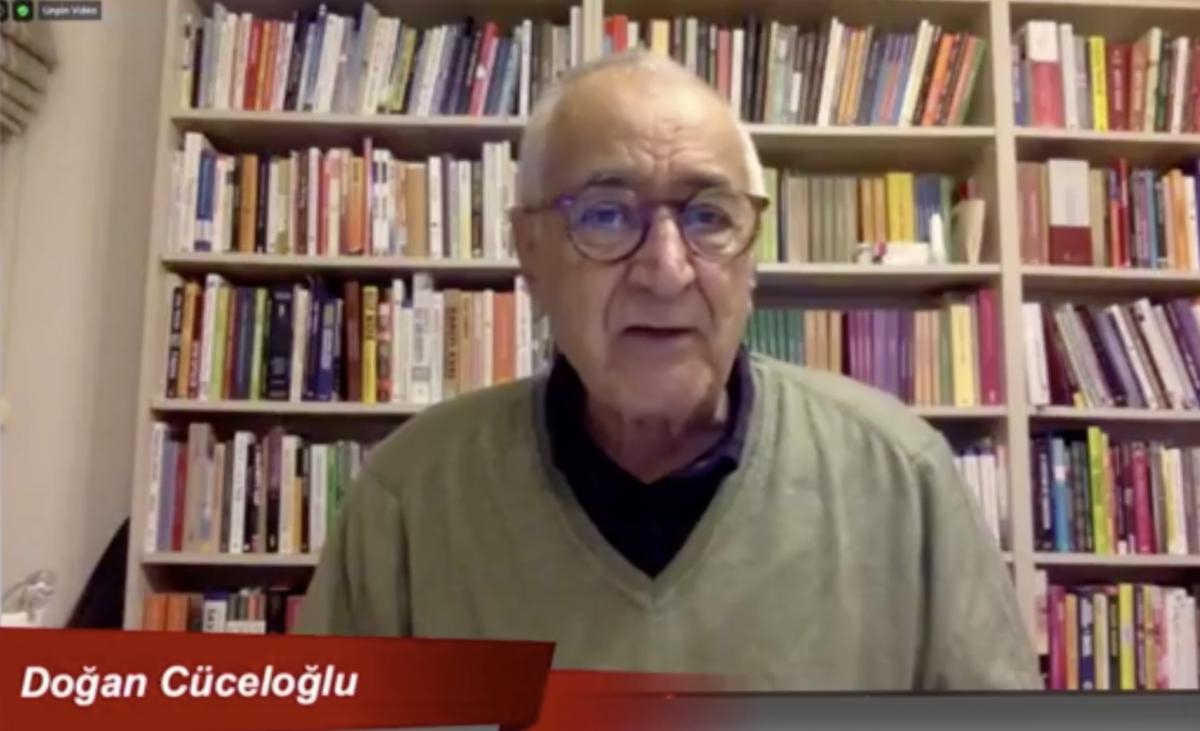
"Child-Family Relationship and the Pandemic" Talk, where Prof. Doğan Cüceloğlu was a speaker, was organized within the scope of "Digital Talks", which were initiated by the Yunus Emre Institute (YEI) due to the novel coronavirus (COVID-19).
Director of Pristina, Prizren and Ipek Yunus Emre Institutes Mehmet Ülker, Kosovo Deputy Minister of Internal Affairs Yıldıray Bayram, President of Gerçek Association Ömer Agalar as well as many parents and teachers from other Balkan countries joined the talk that was organized on December 14th, 2020 with the coordination of Pristina, Prizren and Ipek Yunus Emre Institutes and with the cooperation of Gerçek Association.
|
Director of Pristina, Prizren and Ipek Yunus Emre Institutes Mehmet Ülker |
In his message, Ülker emphasized that the talk was a continuation of the approaches put forth by the President of Yunus Emre Institute Prof. Şeref Ateş in the "Rethink, Reinterpret" programme series.
Ülker mentioned that he was happy to receive the attention and excitement of the participants from all Balkan countries. "We received questions via social media. Not all of those questions were answered. This means that hopefully the pandemic will end soon, and we can host you (Prof. Doğan Cüceloğlu) at Kosovo, at Yunus Emre Institute, face to face and with the happy smiling souls of the people here."
|
President of Gerçek Association |
Agalar, President of Gerçek Association, thanked on behalf of the Turkish people in Kosovo to Prof. Doğan Cüceloğlu for attending and sharing his extensive experience about the subject of talk and mentioned that they wished these types of talks would continue.
The talk was live streamed in Turkish, Albanian and Bosnian languages via the social media accounts of Yunus Emre Institute and Gerçek Association, and was followed by 52,000 people.
CÜCELOĞLU: UNCERTAINTY IS THE MOST FUNDAMENTAL CHARACTERISTIC OF THE PANDEMI
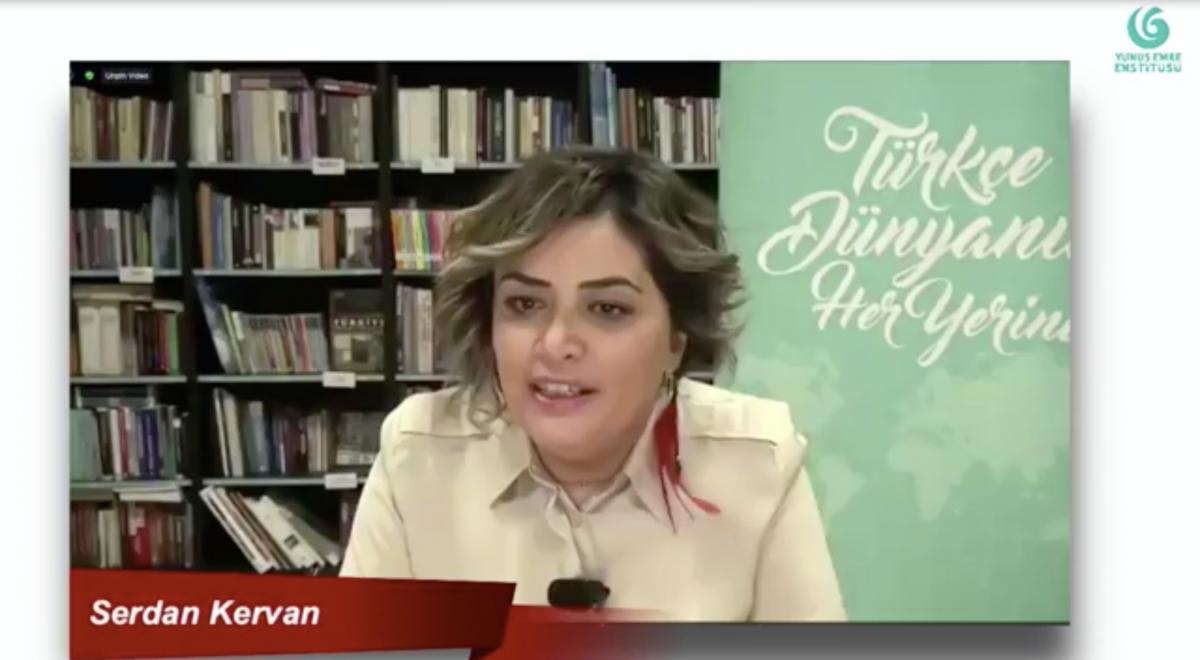
During the talk, which was moderated by Prizren Ukshin Hoti University Instructor, Dr. Serdan Kervan and lasted for two hours, Prof. Cüceloğlu informed the participants about the reflection of the situation on the family relationship and answered the questions of the Kosovans.
Prof. Cüceloğlu touched upon the child-family relationship during the pandemic, and described this new era and the habits it brought about as follows:
"Uncertainty is the most fundamental characteristic of the pandemic. Still, the scientists are not fully came to an agreement on how to protect oneself from this process and how long it will last. All structures ingrained in our lives, work, education and many issues about our social life are in the process of change. I would like to first talk about this change and how this emergent uncertainty affects us. I would like to emphasize five dimensions in relation to the human nature. Let us say that it is the five modes of existence of the humankind; of course, this is my classification, and different groupings may be used. Humans have a biological structure, an emotional existence, a sexual existence, a social existence within relationships, and finally, a spiritual life. When we consider these five modes of existence, we see that we must realize and pay attention to the states that endanger our biological structures and our normal behavior. So, we will no longer shake hands, kiss, hug; when we need to sneeze, we will pay attention not to spread the things that will come out of our mouths and noses; we will wear masks; we will not only wash our hands but wash them for 20 seconds. We will pay attention to social distancing. All these bring about an awareness to our lives all of a sudden."
Cüceloğlu mentioned that uncertainty was an extremely disturbing state in terms of human existence and psychology, and grounded this idea within the infant development as follows:
"An infant starts to feel 10 hours after its born. So, according to some neurological evaluations, an infant knows that if no one embraces it or cuddles with it after it is born, that uncertainty will start to affect the infant adversely. In cases of enormous uncertainty, we cannot deal with it as an organism and release the stress hormone, cortisone. In such a case, the infant dies within three years. When there is certainty, an environment that supports us, we release endorphins. One of the things that I will constantly emphasize here is that it is not a smart thing to talk about things that would relay uncertainty and increase fear when talking around the children. It will weaken the body and increase the possibility of sickness."
Cüceloğlu mentioned that uncertainty would affect our health, mind and relationships.
"This also makes us think: 'Why did this calamity occur? Is there any reason behind it? Does God try to say something to us?'. As I said, five behaviors of the humankind are also affected by this. The first, communication, starts when humans notice each other. In social environments non-communication is not possible. Every social environment definitely involves communication. Communication starts as soon as two persons notice each other. If we are aware of this, it means that we are civilized persons. If we are not aware of this, it means that we are not civilized persons. Whether you look at your phone or at me has a message value. Your posture and all have a message. It is important to understand that. If you are regularly present in social environments a relationship beyond relationships emerge. The human life is meaningful within relationships. Thus, we must care about relationships very much."
BEYOND SOCIAL IDENTITY, WE HAVE OUR UNIVERSAL SELF-IDENTITY, OR NAMELY 'THE SPIRIT'
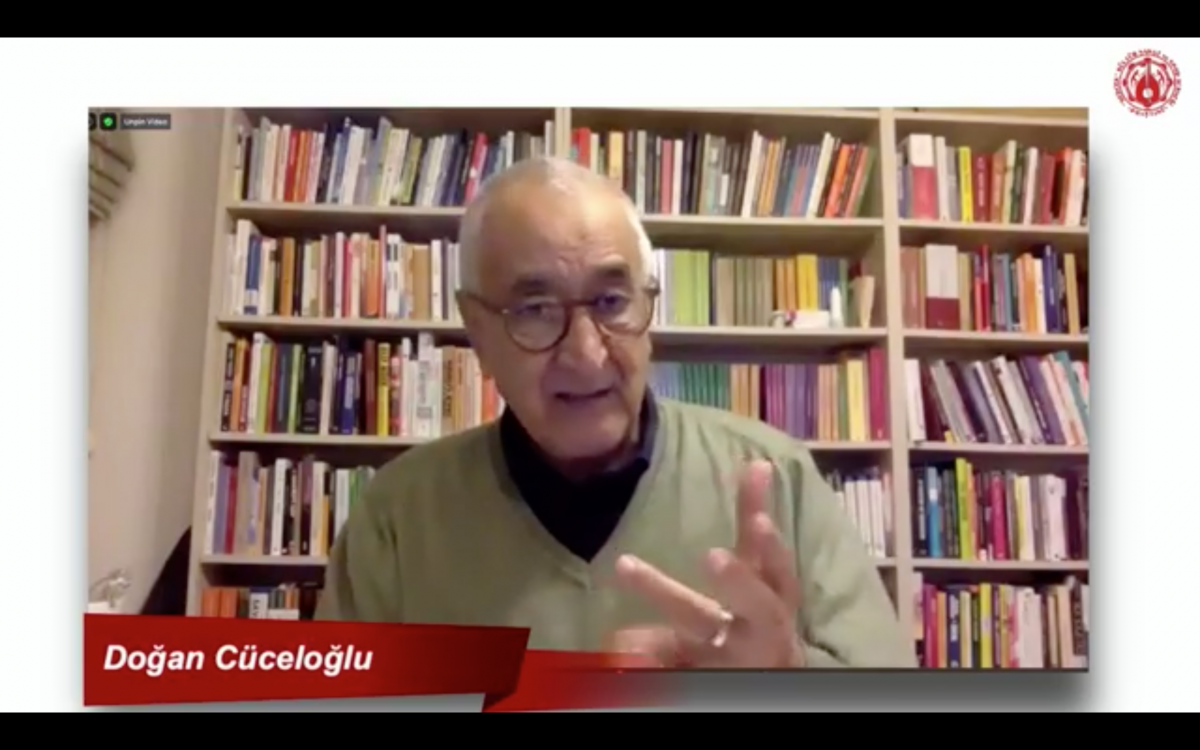
Cüceloğlu explained that the concept of family was comprised of the composition of certain types of relationships, and said the following about the relationships and roles within the concept of family:
"The reason why a family is called a family is because it is a composition of certain types of relationships. Thus, the concept of being in constant communication is important. If we are in a relationship, the two natures of the humankind are always active. One of them is our social identity. The other one is our self-identity. A family is comprised of a mother and father, and perhaps aunts and uncles. When a baby is born, it bestows titles like a king or a queen. Especially if it is the firstborn, someone becomes a father, a mother, and others become uncles, grandmothers and grandfathers. That little baby bestows titles. Those identities also have expectations for sociality. However, beyond social identities, we have our universal self-identities. Our self-identity is very important. I call it the spirit. As Yunus Emre once said 'There is a self beyond my self'. In some situations, the social identity and in others the self-identity is important. Every relationship always has the spirit. It is very important to be aware of this."
THE VALUES WITHIN THE FAMILY AND CLASSROOM ENVIRONMENTS DETERMINE THE FUTURE OF A SOCIETY
Cüceloğlu said that the values that determined the future of a society were essentially the values which the child grew up with and developed within the classroom. He listed the basic values within a family as freedom to ask questions, fellowship, honesty, cooperation and respect. Cüceloğlu explained these values as follows:
"Firstly, do you have the freedom to inquire about a topic, which you are curious about, within the family? I especially care about this. Because every newborn child is born with an enormous potential and curiosity. Until now, those discovered by the sciences, arts and philosophy were based on that curiosity, and those discoveries will be based on the same curiosity from now on. The societies who prohibit that curiosity are doomed to be slaves of those who enable it. Thus, we wonder, should this curiosity be killed or cherished in the family? Do you feel like asking about something you are curious about in this family? Should someone raise their voice and ask questions if they feel like you are wronged?
Second value: Is there fellowship in this family? Why is fellowship important? A society, in which fellowship is not a value, may never become a civilized society. When you understand the birds, cats and dogs, you slowly start to say hello. Now, ecology tries to understand the whales and fish. We try to understand the language of thousands of insects in those wild forests. Being understanding is very important. What makes Yunus Emre the Yunus Emre is that he highlighted this type of values. He is a mystical thinker, a philosopher and a poet who withstood 800 years. We look upon him with admiration as he kept those values alive.
Third value: Is there honesty in this family? Should we be honest with ourselves? Is sense of responsibility important in this family or not? It is a very important value. I know as a psychologist that if a person's sense of responsibility is not developed, that person would never find value in their lives. Meaning is based on the person's sense of responsibility. Therefore, when speaking with mothers, fathers and teachers, I emphasize the importance of developing a sense of responsibility especially in our teenagers. They also want the same and feel that there is hole.
Fourth value: Is there cooperation? Is it 'leave it to me' or 'let us do it better'? I am talking about the family meeting. Thus, I create a structure in the family meeting.
Fifth value: Must we love and respect each other? Respect comes first, and then comes love. Respect must be there. Sometimes we may not love, but we must always respect. We must respect the boundaries. Therefore, if I would like to hug and kiss you, I must ask your permission by asking you, 'May I hug and kiss you', and not telling you, 'Come here'. They will discover and learn that their boundaries are under their control and protect those boundaries. They will learn that everyone should show respect to them. Love is the intention of being the best possible version of yourself. Love is like this: If I love teacher Serdar, then I do my best to help teacher Serdar to become the best teacher he can be. If a principle loves their teachers, they work to help their teachers to become the best."
FAMILY SHOULD BE AN ENVIRONMENT OF DEVELOPMENT
Cüceloğlu mentioned that the children who took responsibility and hit the ground during this period would have an opportunity become more successful in business life 15 years later. Cüceloğlu said that the children who took responsibility got slowly accustomed to having ventures, and explained the importance of responsibility sharing within the family and making plans for personal endeavors as follows:
"I very much care about this. If you have noticed, no one is distributing the tasks. They decide upon them through conversation. Thus, we distribute the roles not through the orders of someone but having a conversation together. These duties may include some personal projects that I want to carry out. I would like to play the baglama for 20 minutes every day. I would like to walk 3 km every day. This is my responsibility. Someone might want to learn English by making use of this time. Someone else might want to write a book or to learn how to draw. We must write these down and allocate time for these. If you have noticed, we started to structure our day. We did not leave the day for coincidences. How much we will spend in front of the computer. How much we will walk. Whatever we are going to do, it started to become apparent slowly within the framework of these values. Our day has passed and it became night, we ate our dinner. Suggestion: A family meeting of at least 10 minutes. Whomever manages the family, the father or someone else, everybody tells what they have done well while they are reviewing their day. We talk about what could have been done better. We discuss what we have learned that day. Thus, we account for the day at the end of each day. For instance, was there anything that troubled me that day? OK, let us talk about it. Let us transform this house into an environment of development.
THE SIX DIMENSIONS OF A RELATIONSHIP IS VERY IMPORTANT
Cüceloğlu said, "I would like to tell mothers, fathers and teachers that follow me the following: There are six dimensions of a relationship: Caring, accepting someone as they are, valuing, reassurance, deeming someone as worthy of love, respecting someone as part of the team.", and explained why the family should live through a culture of love and respect instead of a culture of fear as follows:
"The external witness is always important in a culture of fear based on auditing. There is someone to be feared in the family. Everybody looks into the eyes of that person when they come home. I have grown up in such an environment. The environment of 'I will tell everything to your father when he comes home tonight'. This affects everything, even our understanding of religion. This is an issue of external witness and an issue of internal discipline. My suggestion is to raise our children through such an education system that they discover their inner witness and take the wheel themselves. Thus, the child knows that they are in a relationship with themselves. In reality, we are in a relationship with ourselves as long as we are alive, even though there is no one around us. Therefore, the most important witness is the self. Do I care about myself? If you do not care about yourself, nothing, including your rank or title, can have meaning. Do I accept who I am? Or do I belittle myself? Do I see myself as valuable? Do I care about myself in my relationship? Do I care about my own potential? Do I like to give the effort and time to myself? If all citizens of a country grow, then the country improves. Do I respect myself? In addition, did I discover our team within, and did I start to fulfill my responsibilities?
AN ENVIRONMENT THAT WOULD ALLOW THE CHILD TO CARE ABOUT THEIR OWN WITNESS SHOULD EXIST WITHIN THE FAMILY
Prof. Cüceloğlu explained the confusion and his friend's reaction to him when the students were left alone by the professor during a PhD exam he took while he was a PhD student in the USA as follows:
"My friend told me, 'Should the professor not have left you alone? Doğan, you are a PhD student. Can someone who do not respect themselves respect the truth? Can a person who do not respect the truth be a scientist? This is the honor system.' I first slowly felt the heat, then sadness, and then anger. No one told me until the age of 26, 'You are an honorable person, you are a trustworthy person'; there was always a watcher. Thus, my goal is to create such families and such an educational environment that the child cares about their own witness. When the child cares about their own witness, they cannot lie. Because they now that if they lose their own meaning, they become unable to lie in their own eyes. Thus, the family meetings can provide us with such an opportunity during the pandemic. I think that we can equip our family with values once again within the conversation by acting within the framework of the bases I previously mentioned, and we can travel towards entirely different horizons."
FAMILY ECONOMY SHOULD BE CREATED THROUGH CONVERSATIONS WITHIN FAMILY
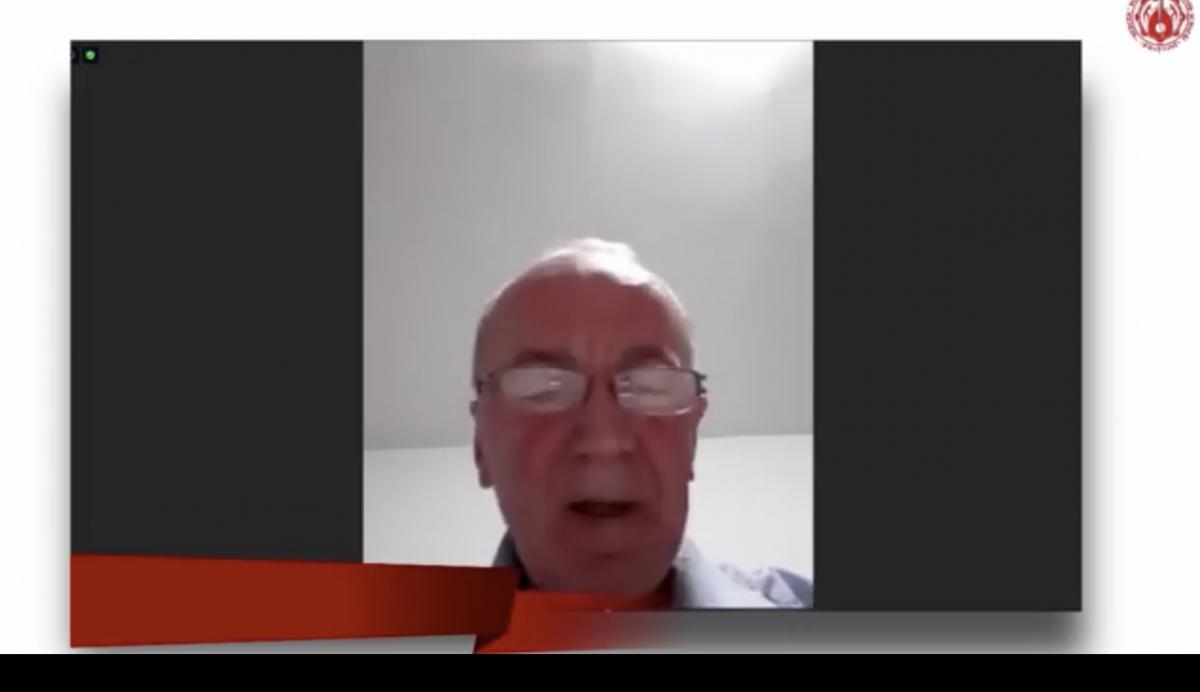
Prof. Doğan Cüceloğlu answered the question by the teacher Şerafettin Enver, "We are living through the pandemic which pressures family economies and which pushes individuals into depression. How can we sustain the child-family relationship in the most affordable way?" as follows:
"This question should be brought up during the family meeting. The family budget should be created with everyone through conversation. Not only a monetary budget but also a time budget should be created justly, honestly and understandingly, within the framework of a budget that is created within the basic family values that I mentioned before. I must emphasize that a family must strive for the development of their children within their means. The most important thing for the child development is the relationship. Relationship with the mother, relationship with the father, relationship with the children, and relationship with the other elders in the house, if any."
Prof. Cüceloğlu mentioned that even making toys at home was an important activity for the family, and explained the importance of sharing and learning other values in the intra-family communication as follows:
"In the past, buying toys was a great luxury. The children made toys out of everything. Sometimes the mother, sometimes the aunt and sometimes the father would help making these toys. The children would learn together in that process. In this process, we talk about why money is important, how to consciously spend money and which values we consider when spending money, and in addition, we must not forget the big picture when talk about the money issue. You are now 12 years old, but in 20 years, you will be 32 and will remember these days. If a 12 year-old person learns the value of money, value of relationships and value of time by acknowledging that they are on a journey to a person that is 32 years old, then they will become such a person when they are 32. One must not feel shame when facing other difficulties during this conversation, and there is also the issue that what we can best do amidst these difficulties. Interestingly, as soon as we feel that we did the best we could have done, our neural system releases serotonin. It releases the happiness hormone. A person cannot be happy with money, but a person that is saving money tells their children, 'See children, we made a 5 Lira profit from here', and becomes quite happy. Thus, my suggestion is to do the best one can do realistically through basic values within a continuous relationship.
EDUCATION IS A TEAM WORK
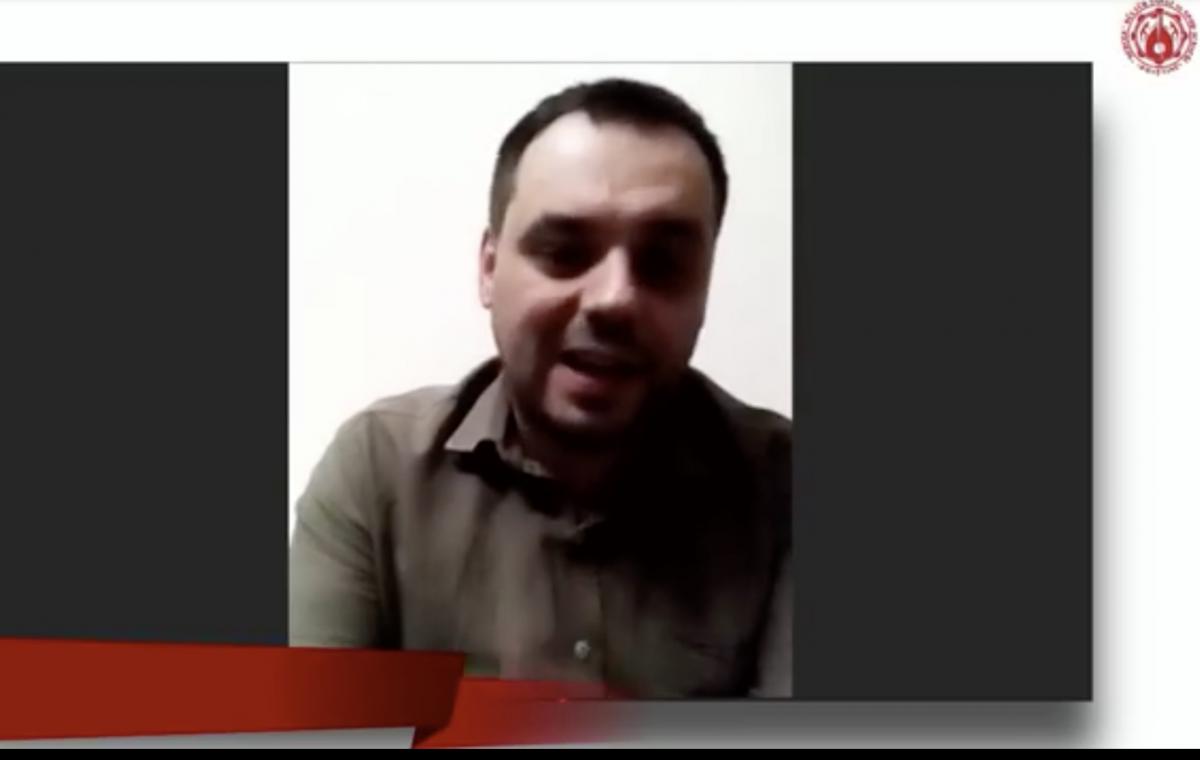
Cüceloğlu also answered a question by Engin Kursan, a teacher: "What to do if we assume that the family we live in is a healthy environment but if the child's classroom environment is not healthy? Does good communication must start in the family?”
"I think education is a team work in essence. Therefore, the teacher must be in a constant contact with the mother-father in terms of education. I suggest them to create parent reading groups in social media. I even say that if you create a group, I will give personal autographs in the group, and many teachers request this. Family has absolute primary importance in the development of children. However, in some cases, mother-father cannot create a nurturing environment for any number of reasons. When the teacher realizes this, they take on roles that would greatly affect the child's life. I talk about this in my book 'Teacher, Can You Have a Look?'. If you still have not read it, I recommend it. The teacher has unlimited power in the education of children."
THE DIFFICULTIES IN LIFE MUST BE EXPLAINED TO CHILDREN IN A HEALTHY COMMUNICATION ENVIRONMENT
Cüceloğlu emphasized that it would help to explain the reality of "not everything in life would be according to one's wishes" in a healthy communication environment within the family without blaming the children, and explained the benefits of this idea as follows:
"Sometimes, things go wrong. This does not happen all the time either. We acknowledge the limits of what we can do through having conversations within the family, and if we start to act within that framework, that calamity will become pretty valuable maturing and educating the child. Making children part of a fight will provide adverse results. We must always act in 'team information'. I tell a child, 'whether we want it or not, that limit is a part of your team'. In some cases, we cannot select our own team. However, our life experience continues. It is important to think about that relationship's potential and how to improve it. For example, an unhealthy situation is ongoing within a family, and the teacher realized that. The poor child is suffering. Mother-father must be reached out to, and we must work as a team. If the mother-father are not up for a dialogue, the child can be taught the perspective of 'what can we best achieve through this situation as the life goes on?' We can teach tenacity and perseverance."
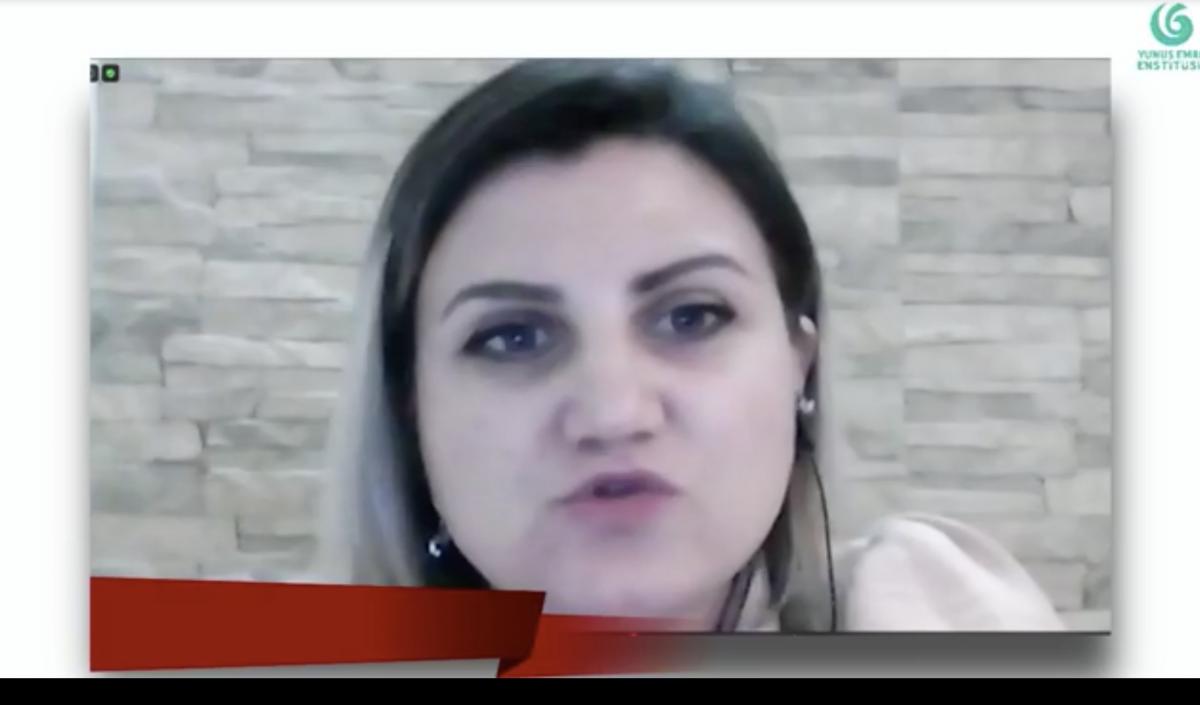
Doğan Cüceloğlu answered the question by Turkish Language Teacher Serap Bayram: "I now separate our lives into two: before and after the pandemic. Before the pandemic, we always tried to keep our children away from the computers and social media. Online education and doing almost everything through computers with the pandemic created a situation that is the total opposite. They now started spend all their time in front of the computers. How will we balance this as teachers and parents? How will we transform the consequences of this after the pandemic ends?”:
"I will repeat myself, but this is a very important concept. First, we will research the topic, and second, we will be in conversation about this. We can develop new habits during certain periods. However, we will start to have conversations about how this is not healthy in the long run. When hopefully this period ends, there will be thing that a child must have in their lives. They can meet with their friends, exercise and read books. Let us once again talk about the just values within these processes. If we review the values, when we handle the topics of "curiosity, justice, fellowship, honesty, responsibility, cooperation and love", the solution suggestions will automatically reveal themselves. When I talk with a child, I tell them, 'Ömer you are now 8 years old. Close your eyes, today is December 14th, 2020. Now, when you open your eyes, it will be December 14th, 2020. 20 years have passed now. You are now 28 years old. You will be working. Are you married? Do you have children? Yes.' Now, within this conversation, I started to continuously tell him 'Ömer, do you know that the choices we make today will affect the 28 year-old Ömer? Therefore, we must be aware of the choices we make today. Thus, today, we do not just save the day. We are living through an intense moment and travel towards the future.' Pay attention to two things. The first is the values that the family live with, and the second is taking decisions together. When you acquire information about any development, you will say ‘My child, as far as I can see and as far as I can understand the works done, it is very important for a child to play games, to participate in teams and to attend summer camps. Many things point toward this. Therefore, a person that spends their time in front of the computer and a person enriched by these relationships start to go toward different end results. My love is for you to become the best you can be. Therefore, we will always talk about this.' The children feel this. Perhaps you know it, there is an experiment carried out 30 years ago. They place marshmallows in a room. They tell the children 'I will leave now and come back five minutes later. If you do not eat it I will give you another one.' They monitor the children in this experiment for 30 years. There are enormous differences between those who ate and who did not eat the marshmallows in terms of physical health, marriage health, occupational health, success and income. This demonstrates that if a person considers the future and make sacrifices when making a choice, if they consider the future and delay the reward that they will get now, those people come out different. When we talk and have a conversation about this with children, the child starts to accept going through some difficulties for their future. Conversation, conversation, conversation. Conversation in a language that the child can understand and within the framework of the family's basic values. Now, let us say that the counsel is not heeded. The rules applied to the children and the rules applied by the authority figures to each other are not in conformity. They tell the child to study, but they themselves watch the TV. So, the awareness of us is very important. After a while, it is highly possible that the child sees this effort and says, 'I see the effort given to me by my mother and father' and becomes a part of that team.
Doğan Cüceloğlu answered the question by Meral Aygün, a teacher: "Does Coronavirus pandemic create a lost generation?":
"An important question. Each student should be evaluated within the frameworks of their environments. There is that danger. The awareness of the family is very important. The difference of quality and perspective between the teachers start to become very important. Therefore, we must work in a very conscious manner. But I see this. This is not a situation that cannot be compensated by a conscious mother and father. For example, if a mother-father says, 'I will not send my child to the school for one year, because I fear for their life.', this is not a situation that is not remediable. Your manner will be very important. If we panic, that child also learns to complain like their father and mother. They will say, 'I am the child of a lost generation'. Therefore, we should discuss and evaluate what the mother and father and the school teacher can do in this situation. At most, one or two years are lost. However, this can be easily compensated for within a lifetime of 90 years. When I started the primary school, I was 7 years old, and I contracted malaria on my first day of school and came back home with malaria. Malaria is our national sickness in Silifke; we contract malaria every September. The doctor said that the vaccinator vaccinated you in the wrong part of your body. I became lamed and could not attend school. I was lame, and my leg withered. Thank God, my mother's olive oil and ginger treatment worked out. I started the school the very next year. I lost a year. However, I did not get lost and disappear; I could not go the school for a year but did not become a part of a lost generation. Therefore, we must act without excess and according to the best we can do within our means. There are some who say that the schools should be postponed for a year and that it would be for the better. We cannot decide on that, and thus, we must think what we can do in the current situation."
WE SHOULD PAY ATTENTION TO GIVING THE RIGHT MESSAGES TO THE CHILDREN IN DIGITAL MEDIA
Doğan Cüceloğlu answered the question "You said in your book, 'Education starts when the student and the teacher have a look at each other.' Now, we cannot have a look at each other because of the pandemic. The cams are sometimes on, and they are off at other times. How much the children will lose because of this? Especially those in primary school and pre-school. What would you suggest in this case?" as follows:
"A very important question. I stand behind my words. This is an education that is 'as if'. This is not a real education. Especially if the children are at pre-school/primary school age. Because the children can acquire the education through close contact and different clues. These disappear in distance education. We are establishing a distance education through computers that is within the cognitive framework at fewer locations. Let us be aware of that. Let us pay attention to enrich it as much as possible and to give the following six messages that I previously mentioned to each and every student: "I care about you; you are not the other; I accept you as you are; you are an individual; and I value you for that individuality. You have an enormous potential, and I care about that potential. You can do it if you set your mind. I trust you. You are worthy of my effort and time. I love you. I see you as a part of my team, but at the same time, I respect you as an individual." It is important to relay these values, however, it is hard to do so via a computer. You will try your best while being aware of this. However, we should not continue educating with the same methods in healthy days saying that this is the new method. We must create an environment that the children can see each other, interact with their teacher, in which they can be embraced by teachers and they can run around and play. We should consider this as a temporary period and do the best we can; and that will be possible in cooperation with the family. We must do the best we can for the distribution of roles in the family."
SIX VALUES FOR CHILDREN TO STAND ON THEIR OWN
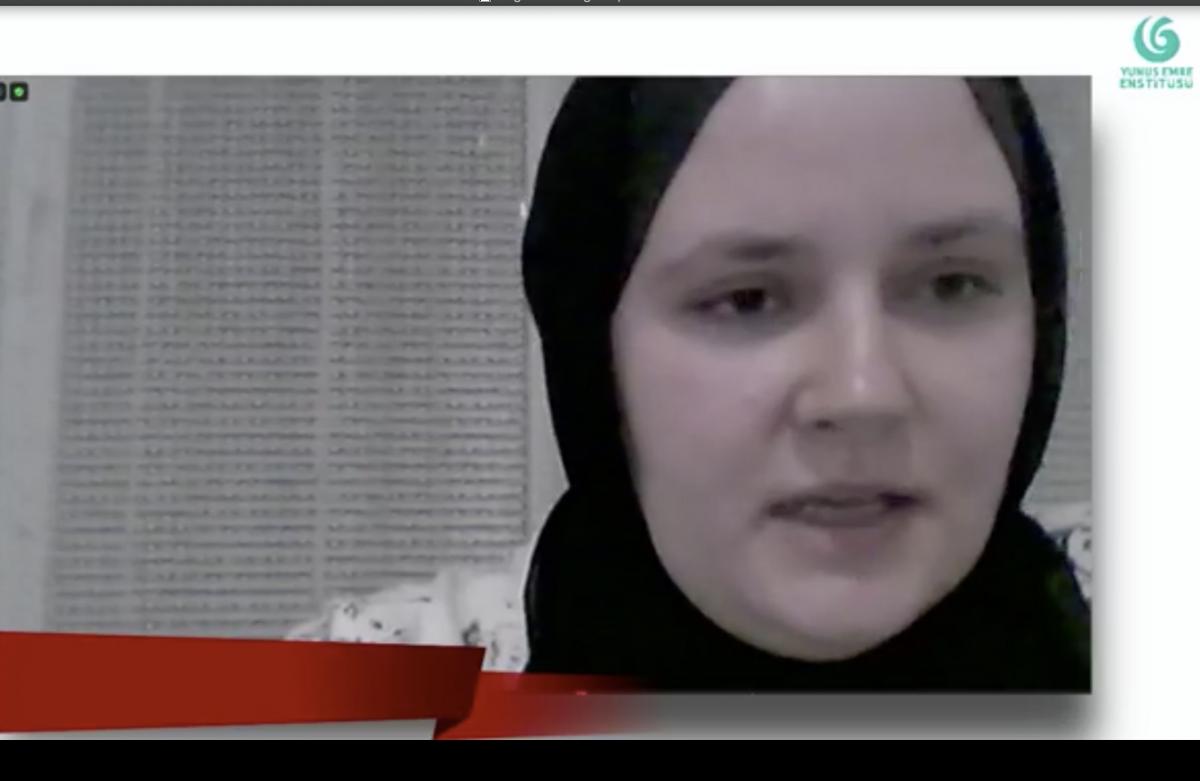
Prof Cüceloğlu explained the values a family should have for the question "How should we deal with our children in order for them to become individuals that can stand on their own two feet and who have a high awareness through utilizing their minds." Cüceloğlu mentioned that the self-confidence of a child would start to develop if the persons that are in a relationship with the child within a family or an educational environment could deliver the six important messages, and continued his talk as follows:
"This awareness emerges when the child is six months old. Research show that the child is aware of these six values when they are six months old, and they are nurtured and their hormone releases change accordingly. Firstly, the messages of 'I care about you; I accept you as you are." are very important. The first child of my deceased older brother was born as a girl in Silifke. He was upset with my sister-in-law and did not speak with her for two months because she gave birth to a girl. Unfortunately, this still exists in my country. That child remained devoid of her father's embrace for two months. Now that nephew of mine is 65 years old, and I see that this affected her. We must explain how ridiculous and sinful this is. Second message: 'I care about you; I accept you as you are; and you are gift of God to me.' Third message: 'Not one person is like you; I accept you as you are within your individuality.' Fourth message: 'Believe me, you are a magnificent potential. I will do the best I can for you to become the best version of yourself.' Fifth message: 'You are worthy of effort and time, because you are worthy of love. I love you. I will give you both my effort and time. Because I love you.' Sixth message: 'I respect you. I respect your boundaries. But you have responsibilities. But you are part of a team. I expect you to fulfill your responsibilities.' These are very important. If a child engages in conversation and is nurtured with these within the educational environment by their father, mother and even grandfather, do not have any doubts. They will grow strong on track to become the best versions of themselves. That, I think, is the most important educational environment of life. If someone who did not get these tries to remedy the lack of these with corporate trainings, then their life will be hindered at some point. Nurdoğan Arkış talks about this in her book 'How Does Self-Confidence Develop in a Child'. I also have a book called 'Enhancing Mother and Father' about this issue. I also have a book called 'Child within Us'. Is the child within us drowned in shame, or is it hiding itself with sadness, or is it someone who is anxious to start the life? This is also important. Therefore, you should have a look at 'Child within Us'. This is an extensive subject. However, the sources I mentioned clear the topic more or less. It all comes down to the child experiencing these six emotions."
You can watch the programme titled "Parent-child Relationship and Epidemic Period" talk where Prof. Dr. Doğan Cüceloğlu was a speaker on the social media channels of Yunus Emre Institute.




